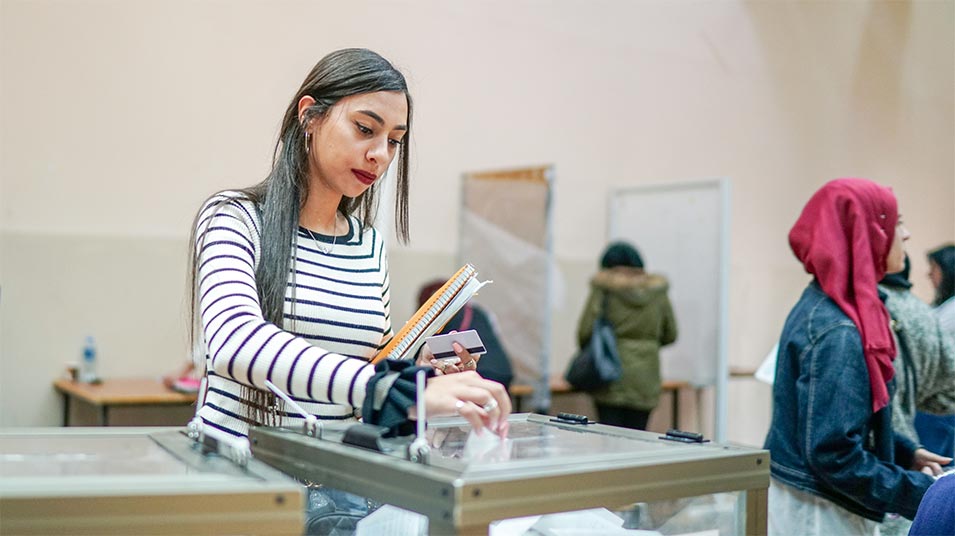Student analyzes the effects of using the electoral quota system
“Using the electoral quota system as a temporary stopgap does not supersede employing long-term strategies that affect change in the public’s perception of the role of women in the Palestinian society,” writes Waad Qannam, a lawyer and a student enrolled in the Master’s Program in Law at Birzeit University, in her paper, “Electoral Quota Between Equality and Discrimination: An Analytical Study.”
Qannam’s paper, published under Birzeit’s Working Papers Series in Legal Studies in the Master’s Students Papers Module, was presented in fulfillment of the Public Freedoms and Fundamental Rights course, and was reviewed by the course instructor, Dr. Asem Khalil.
The paper analyzed the electoral quota system as a form of positive discrimination, and concluded that it does not qualify as a violation of the men’s equal elective and political participation right.
Qannam also noted emphasized that the state shouldn’t overuse positive discrimination; doing so risks violating the laws that it seeks to protect. She also reiterated the importance of making the quota system a temporary one that ends once it fulfills its purpose.
You can view Birzeit University’s latest research papers and publications on Birzeit University’s Open Access Repository – Fada.







